THE DEEP SEA MINING SUMMIT RETURNS TO LONDON
17.04.2024
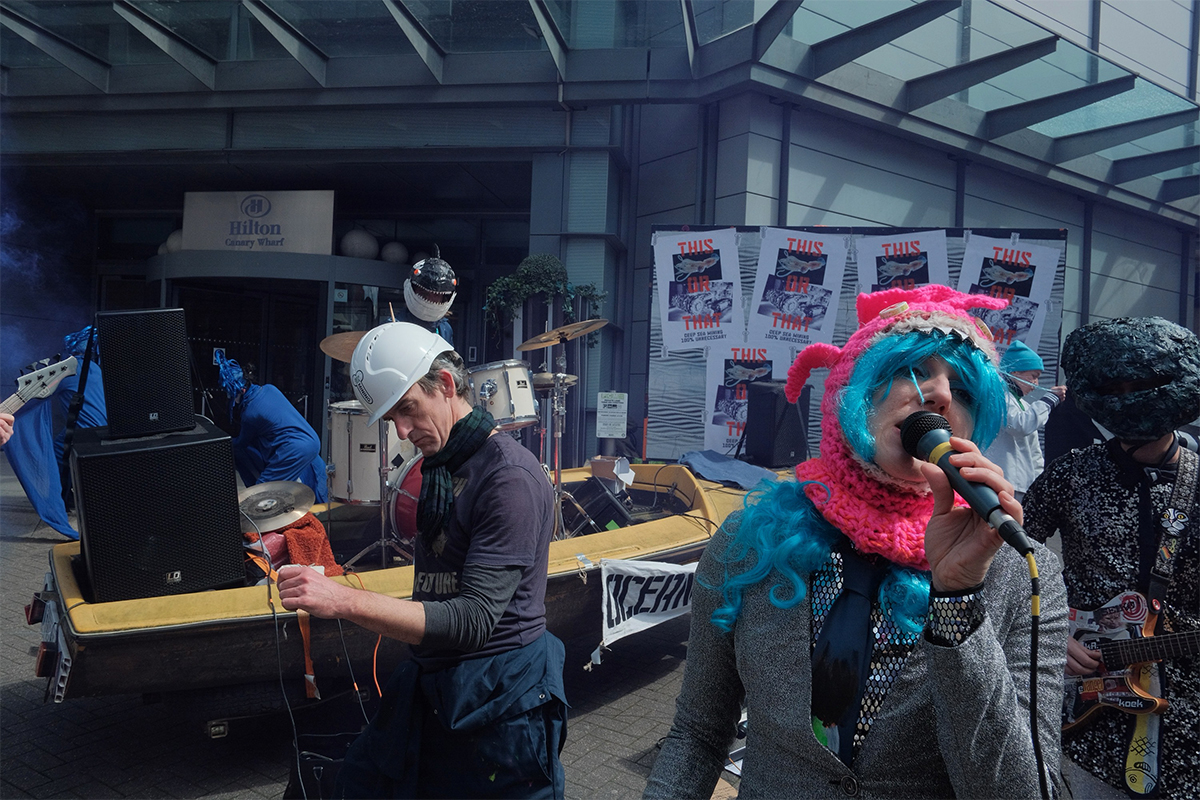
⬆️ The Polymetallic Nodules take to the boat stage to split eardrums at this years Deep Sea Mining Summit at the Hilton Hotel, Canary Wharf [shame on you Hilton Hotels – hiring space to this shower is really scraping the barrel].
—
The Deep Sea Miners are back in London for another summit of back slapping and greenwashing. Once again they’re hoping to reassure themselves (and their investors) that mining the deep sea is worthwhile. This is despite the majority of marine scientists, governments and corporations telling them it’s absolutely not worthwhile – in fact it is a totally disastrous plan. A plan meaning certain death for deep sea life and a wrecking ball for the future of our shared planet.
Luckily the Polymetallic Nodules are back too.
They’re back to remind the greedy delegates how loud and disturbing deep sea mining really is, by playing a gig of deep sea heavy metal riffs at max volume. The Nodules played while the delegates ‘networked’ during lunch and visited a ‘Deep Sea Mining Exhibition’ – whatever that might be, probably a load of photos of their deadly machines mashing up the seabed.
Here’s the summit’s full itinerary, please feel free to contact the speakers and let them know how you feel about their plans:
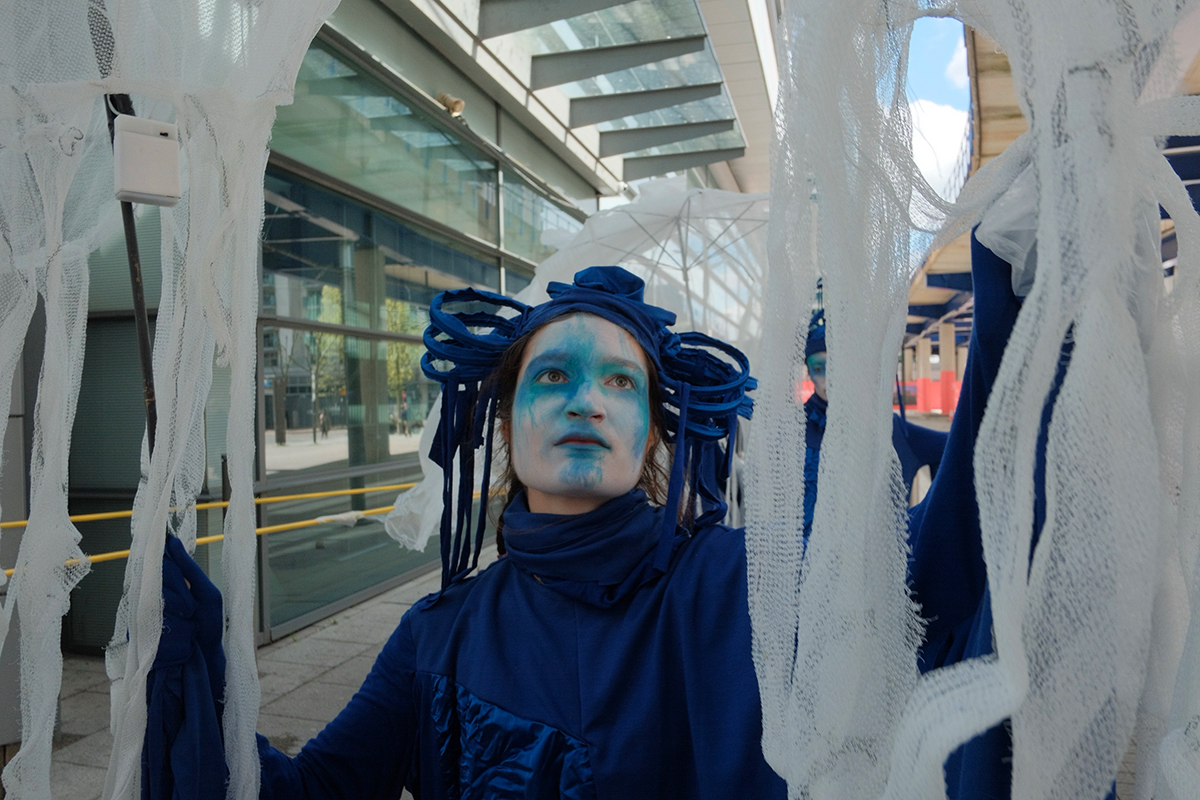
⬆️ The Nodules were joined by blue dancers from the deep.
—
The Nodules were also joined by bemused deep sea miners wearing their regulation helmets (or dick heads) and their loyal fan base. The band smashed through their set list, going at every song like possessed squids. Crowd favourites like ‘BUTCHERING THE SEABED’, ‘NOT DURING MY PARTY’ and ‘WE ALL DIE (PLANKTON)’ had the mosh pit heaving like a deep sea swell.
The lead singer, ‘Algae’, writhed in agony on the pavement yelling, “I can’t breathe, I can’t breathe,” a reference to what happens to sea creatures when they are caught in the sediment plume created by deep sea mining – a plume of doom. A plume that fills the water column with death and releases unknown toxins, captured in the deep seabed for thousands of years, into the Ocean.
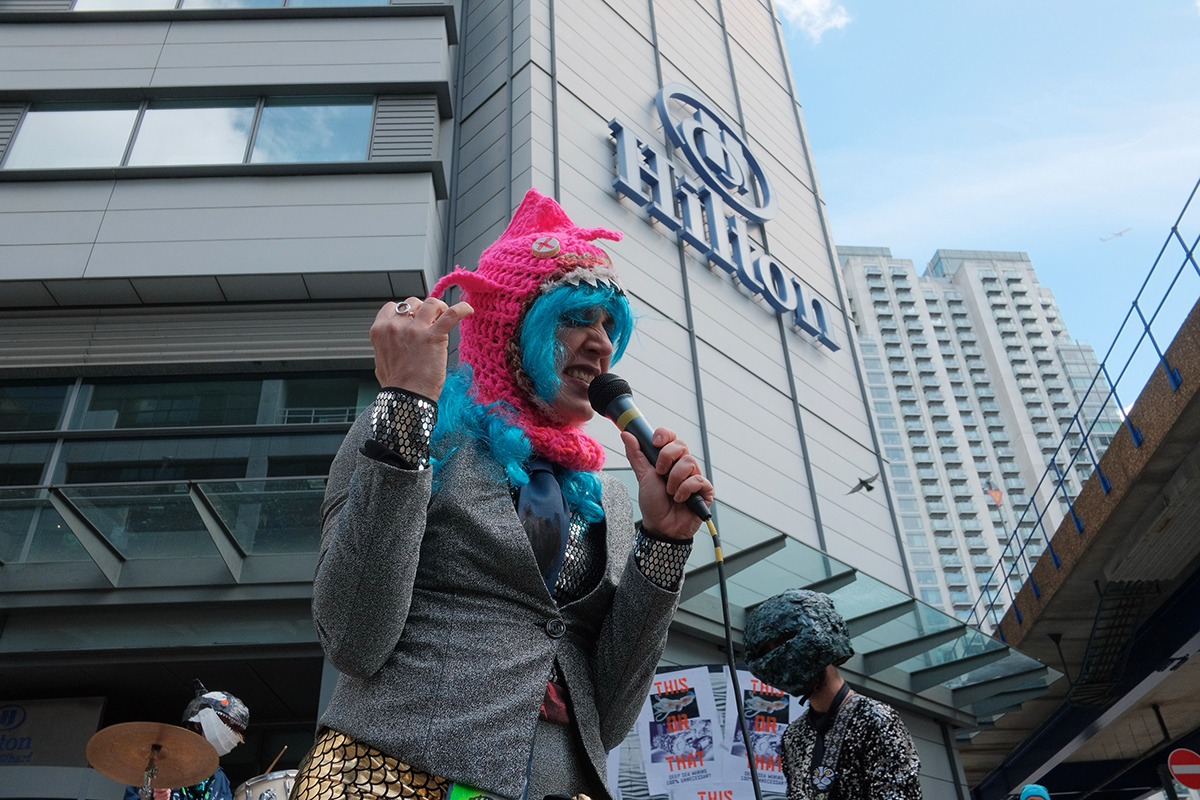
⬆️ How loud do you want it? 11? We can do 12 – but that’s still much quieter than the phallic machines deep sea mining companies are sending to the bottom of the Ocean.
—
Ocean Rebellion asks attendees of today’s (and tomorrow’s) Deep Sea Mining Summit to consider how loud our music is while they munch their lunch. Is the disorientation of deep diving animals an expense worth paying to test out their pseudo-science? Is the destruction of unique marine habitats really worth their profits? Do attendees want to destroy the last unspoilt habitat on the planet? We demand they consider the real problems of deep sea mining instead of talking, like Loke, about ‘Minimum Environmental Impact’. Ocean Rebellion isn’t alone in questioning the value of deep sea mining. Marine scientists from around the world, global businesses and many sovereign nations agree that it is a really bad idea. Twenty five states including Spain, France, Germany, Denmark and Canada have all spoken out against deep sea mining, calling for a moratorium, pause, or even an outright ban, saying the impacts are not understood and the benefits are not apparent. And vehicle manufacturers BMW, Volkswagen and Renault have declared their electric vehicles will not use deep sea mined metals.
The fate of the Ocean depends on us all.
Our interventions depend on your support.
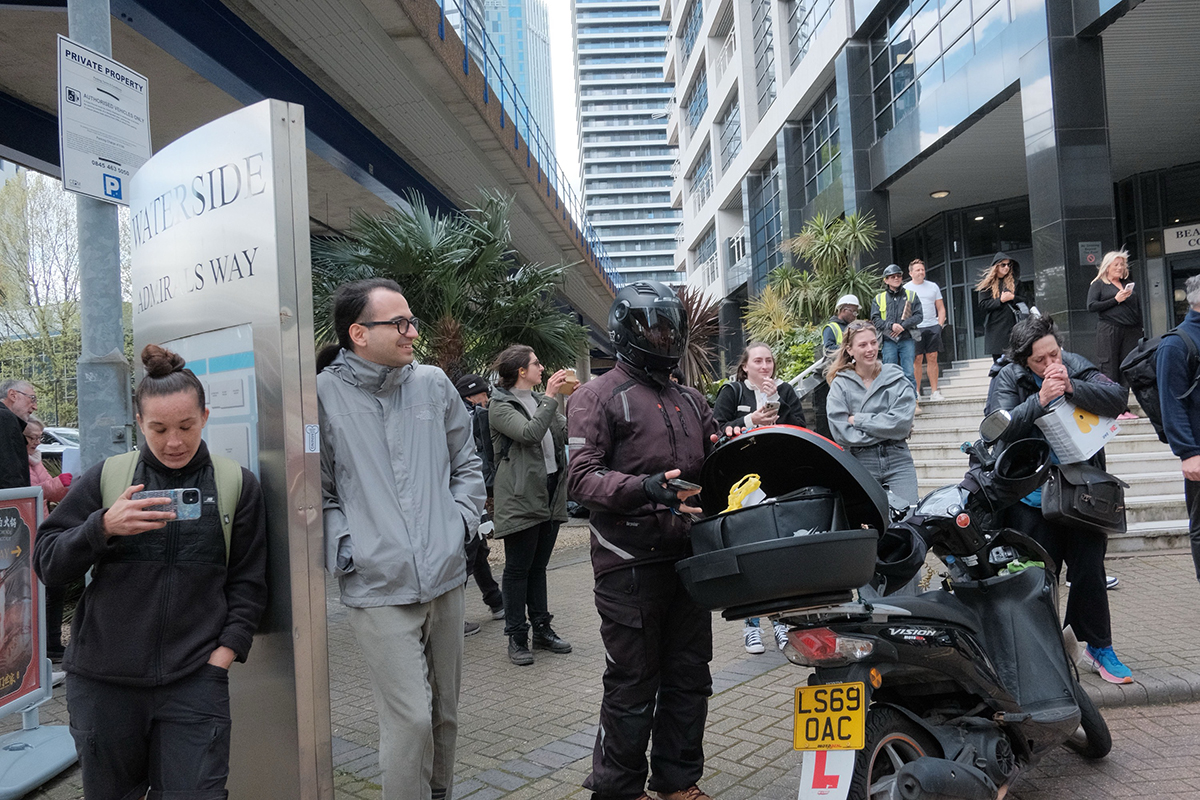
⬆️ A crowd gathered to watch the gig and find out about deep sea mining. Is that the drummer arriving late?
⬇️ Nope, Fish Stix is already on the drums.
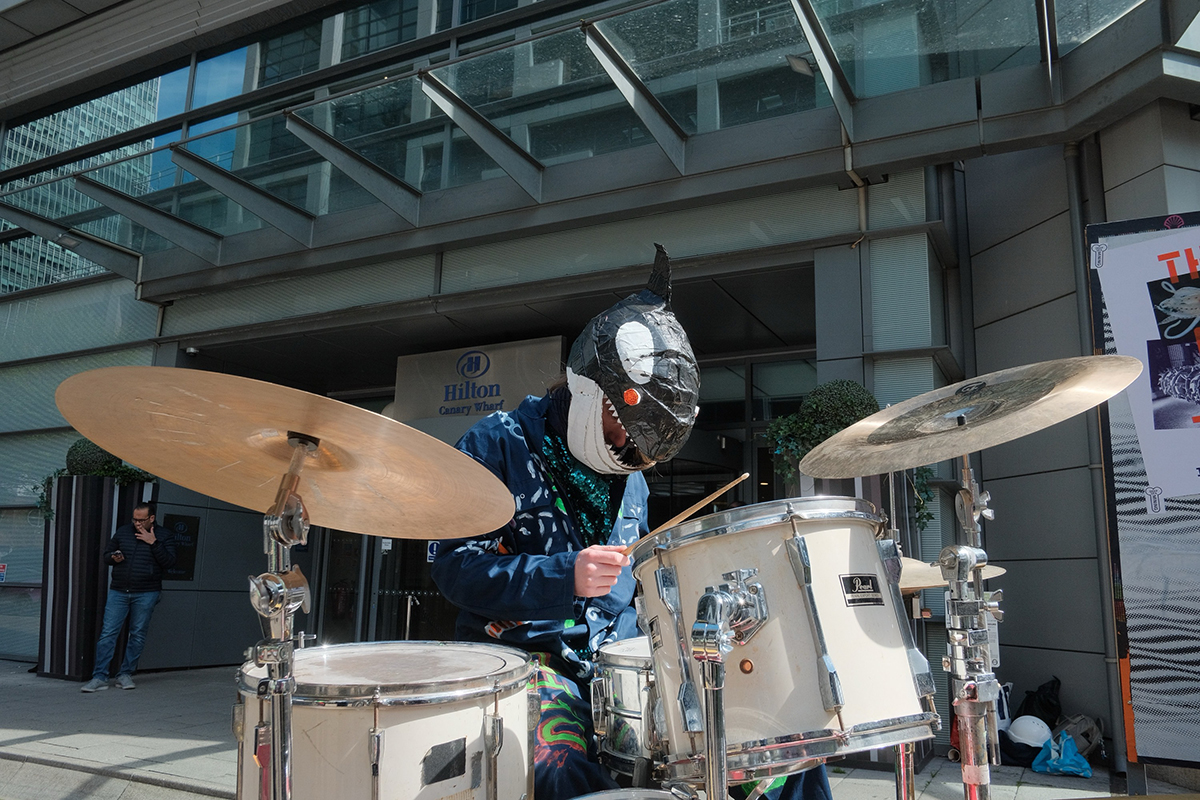
—
What is deep sea mining and what harm will it do?
Parts of the bottom of the deep sea contain mineral chunks known as ‘manganese nodules’. These hard rock-like lumps can be used for ‘green’ battery technology, among other things. The companies who want to mine for nodules would like us to think this can be done carefully, but this is simply untrue. Deep sea mining strips the seabed of all life, including deep sea sponges, and corals that have taken thousands of years to grow. It releases huge plumes of sediment into the water column and no one knows what effect this will have on the ocean and its ecosystems but the consensus isn’t good. Plus, as mentioned, the noise deep sea mining makes will disorientate marine life that relies heavily on sound to create its underwater maps for feeding, mating and communication.
If deep sea mining goes ahead massive areas of the ocean seabed will be devastated. Recently the UN International Seabed Authority (ISA) awarded licences to mine 8,000 to 9,000 square kms of deep seabed at a time*. This area is equivalent to the size of Wales. That’s Wales stripped clean of all life, hard to imagine this being allowed on land. So why does a UN body, the ISA, and the deep sea mining companies, think it’s ok to do it at sea? It’s like using a bulldozer to harvest apples in an orchard.
‘Fish Stix’, the Nodules drummer, says:
“The deep sea is not a ‘resource’ to be plundered at will by a few greedy companies. It’s a vital habitat we know little about. The UN International Seabed Authority must stop this insanity now and start protecting the seabed for the benefit of ALL life, not for the benefit of its own funding model nor a group of greedy insiders. Also, science overwhelmingly says NO to deep sea mining. There is no reason to do it!”
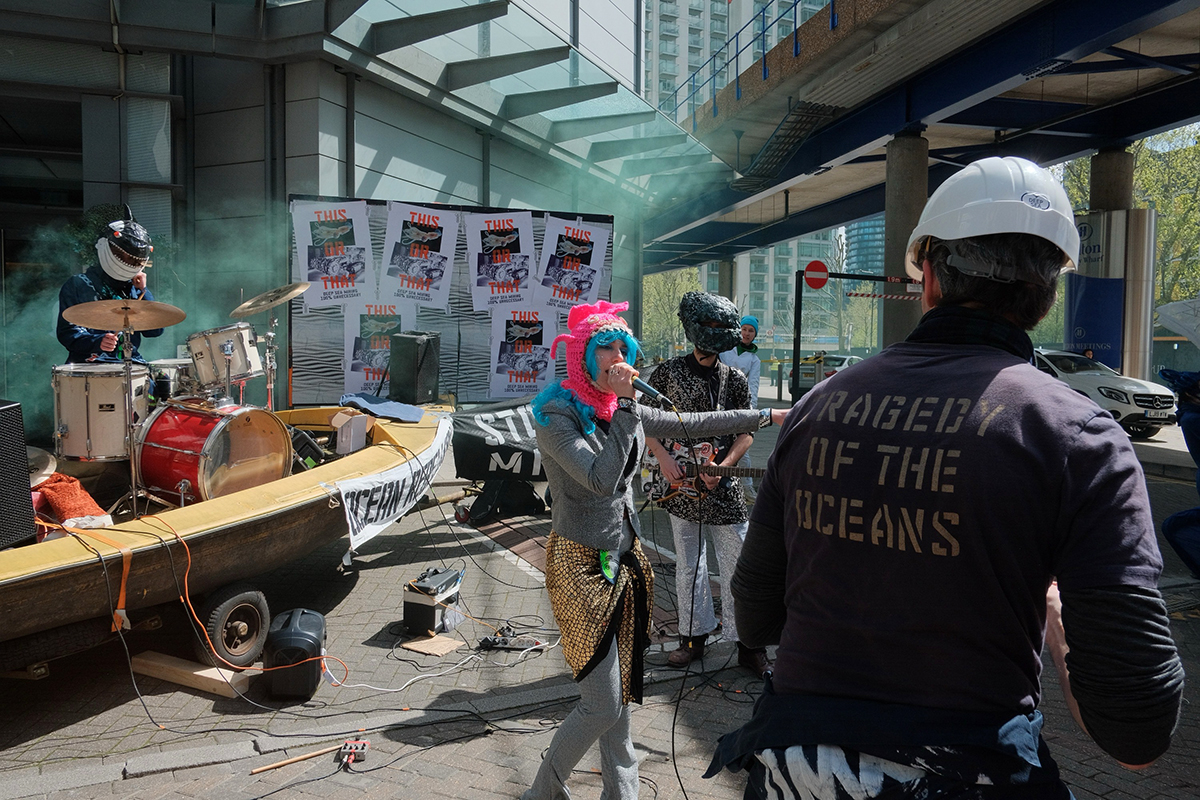
⬆️ ‘Butchering the seabed’ is one of the Nodules favourite songs. It’s also exactly what the attendees of todays Deep Sea Mining Summit are plotting.
—
Do we need deep sea metals to go ‘green’?
The deep sea mining industry would like us to think so. But major international companies have stated they will not use nor invest in deep sea metals. The list is growing and includes signatories like BMW, Volkswagen and Google. Banks are also steering clear of this emerging industry that belongs in the past. Deep sea mining is a 1970s nightmare living in the 21st Century, a lot like fossil fuels. In fact the only real solution to our climate crisis and resource issues are nature-led and require a change in the way we live and act. The throwaway culture of the past needs to be thrown away, companies and governments must transition away from exploitation (using technology as a guise for progress) for profit, towards a circular view that values repairability and the urban mining of existing, extracted, metals. Also, there is a whole new generation of batteries, that do not need cobalt or nickel. E.g. the litihium-ion battery. Already 30% of all electric vehicles are equipped with a new type of battery that does not need deep sea metals, what’s more battery technology is changing fast – sodium batteries are already on the horizon.
deep sea mining 100% unnecessary
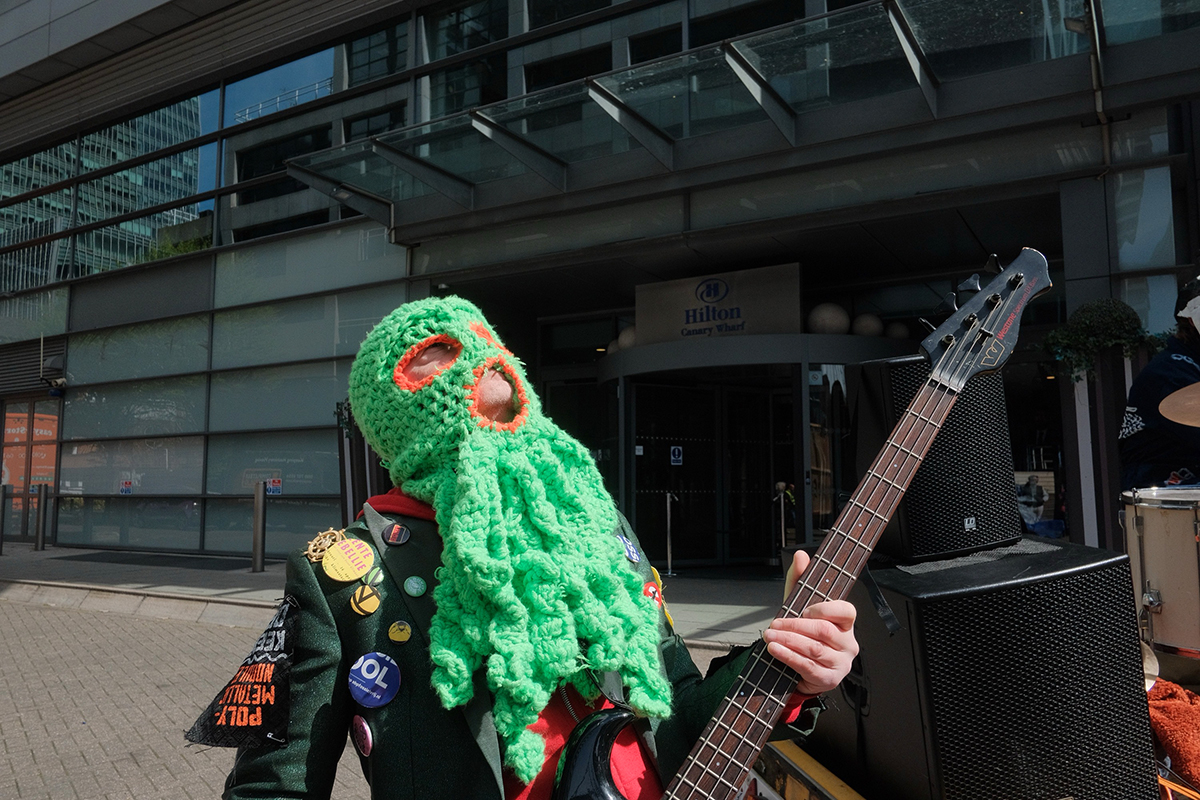
⬆️ A Matt Fishious bass attack is 100% necessary. Deep sea mining is 100% unnecessary.
—
Ocean Rebellion demands an end to Deep Sea Mining. Together with a root and branch reform of the ISA. This reform must focus on protecting the deep (and high) seas on behalf of ALL life and future generations.
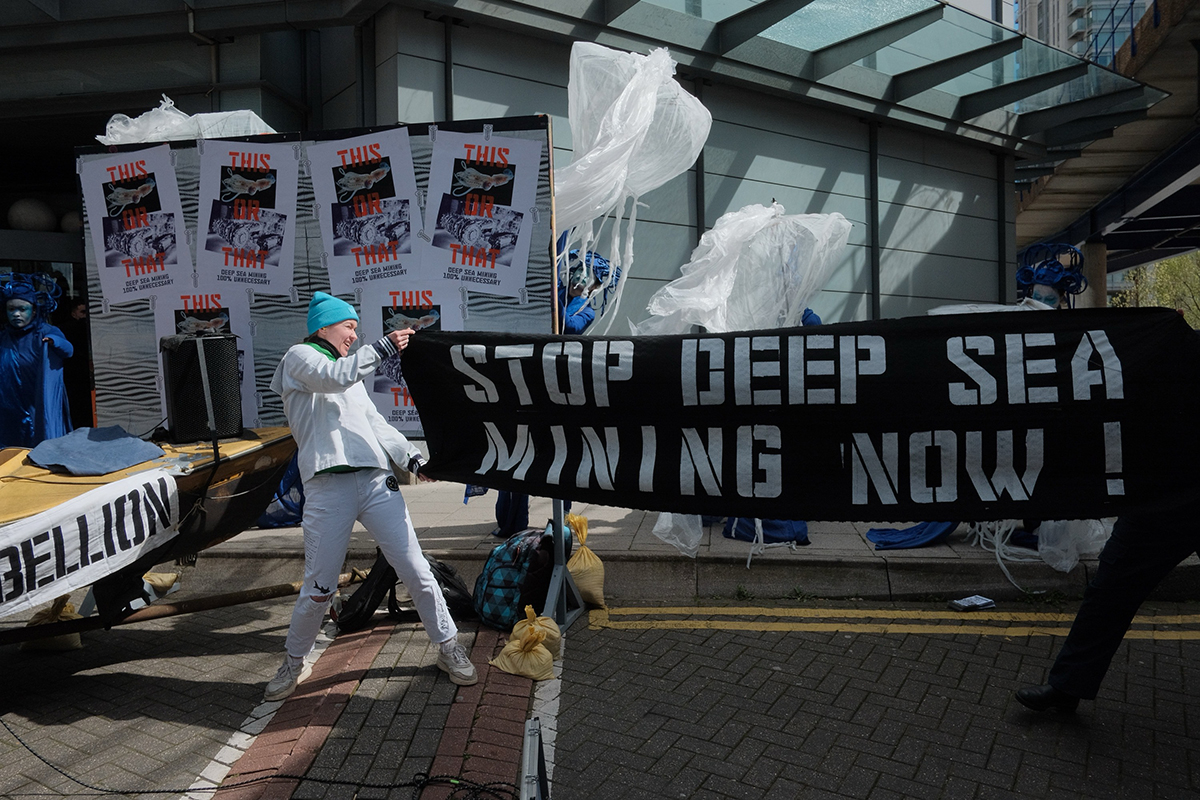
⬆️ It’s a simple message, listen to it Loke, The Metals Company, Allseas and all you other greedy, would be, miners.
—
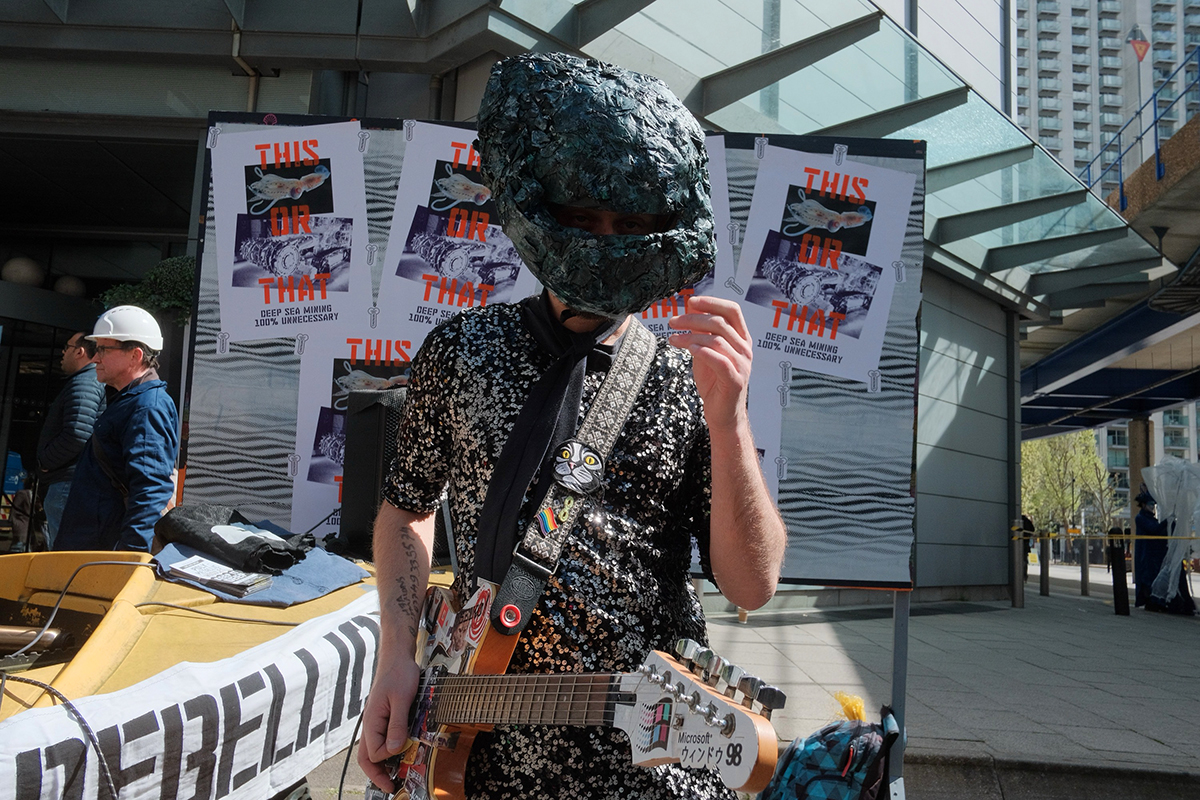
⬆️ We’ll be back.
Photos by João Daniel Pereira.
—
*The ISA has granted over thirty exploration licences to date, and if all 17 of the current mining claims in the Clarion Clipperton Zone were to be mined, the overall impact to the seabed would likely extend from some 350,000-800,000 km2 based on recent estimates from scientists (Smith et al., 2020).